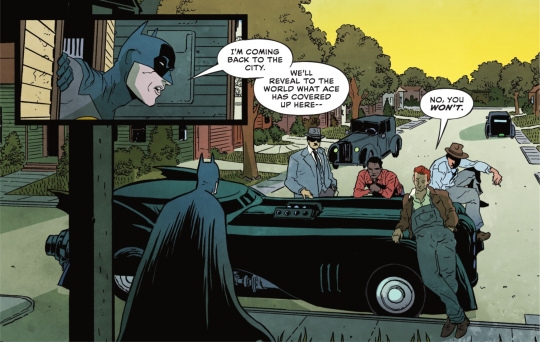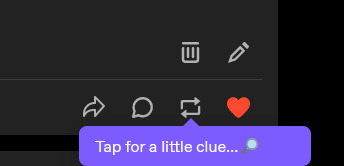#Dark Patterns
Explore tagged Tumblr posts
Text
Trump can’t do ANYTHING for his base

I'm on a 20+ city book tour for my new novel PICKS AND SHOVELS. Catch me in PITTSBURGH on THURSDAY (May 15) at WHITE WHALE BOOKS, and in PDX on Jun 20 at BARNES AND NOBLE with BUNNIE HUANG. More tour dates (London, Manchester) here.

Trump's coalition includes a huge number of people who will suffer terribly from his policies, but who voted for him anyway. Trumpism requires that he find ways to keep those Christmas-voting turkeys happy, or at least distracted.
Trump's go-to move for keeping his base happy is inflicting pain on people they hate, like immigrants, racialized people, queers and women. That goes a long way, obviously: there's a kind of person who can be distracted from their own deteriorating material condition by the spectacle of cruel treatment for their enemies.
But Trumpism can't just run on sadism. There's a lot of people who enjoy the sadism, but not so much that it cancels out their own rage at their deteriorating personal conditions. Trump's main tactic is to blame the suffering of his base on the rest of us: "radical leftists," "wokeism" and other hobgoblins of the small-minded. That, too, has its limits – especially when Trump controls Congress, the courts, the senate and the White House. Obviously, Trump isn't above blaming his own people for being traitors (e.g., by sending a literal noose-bearing lynch mob after his own vice president), but there are limits to this, even for Trump. If all the power-brokers in Trump's coalitions are branded as disloyal, cowardly, or traitorous, Trump will have no one left to do the actual work of advancing his agenda.
Ultimately, keeping Trump's base happy requires providing some form of material benefit to that base. Every authoritarian has a version of this – like the cash handouts that Poland's former far-right government gave out:
https://pulitzercenter.org/stories/poland-model-promoting-family-values-cash-handouts
For Trump, this presents a problem: because he represents the interests of exploitation, extraction and looting, everything nice that he gives to everyday people in his base potentially gores the ox of someone who really matters to him. It's no surprise, for example, that he reversed Biden's price-cuts for Big Pharma's most expensive drugs – the cheaper drugs are for sick people, the less profitable they'll be for pharma companies:
https://www.levernews.com/trump-already-disarmed-the-war-on-drug-prices/
Luckily (for Trump), Biden's consumer protection and antitrust agencies teed up a long list of extremely good policies that would directly shift money from rich parasites to everyday people. For example, the Consumer Finance Protection Bureau passed a rule that would make it very easy to find out which bank would charge you the least and pay you the most, and let you switch banks with one click:
https://pluralistic.net/2024/11/01/bankshot/#personal-financial-data-rights
It was a move that would have shifted $667m/year from banks to everyday people, every year, forever. But Trump's most important barons, like Elon Musk, hated the Consumer Finance Protection Bureau and insisted that it be shuttered, so that $667m/year will go to the banks after all – indeed, virtually all of the good things Biden's CFPB decreed the American public would enjoy henceforth have been destroyed. Sure, Trump would have liked to have taken credit for these, but the conflict between stolen valor and displeasing Shadow President Musk will always cash out in Musk's favor.
It's not just the CFPB. The FTC also set up a whole roster of ambitious projects to improve life for Americans. Some of these made the news in a big way, like the antitrust case against Meta:
https://pluralistic.net/2025/04/18/chatty-zucky/#is-you-taking-notes-on-a-criminal-fucking-conspiracy
Trump has lots of upsides from pursuing the Meta case. Everyone hates Meta products, including (especially) the people who are trapped using them because that's where their friends, family, communities, customers or audiences are. Breaking up Meta would be hugely popular with the American people. But also, once a court has convicted Meta of violating antitrust law, Trump can solicit favors – cash and favorable algorithmic treatment – from Meta in exchange for ordering his FTC to go easy on Meta in the "remedy phase," letting them off with a fine, rather than forcing them to spin out Whatsapp and Instagram:
https://pluralistic.net/2024/11/12/the-enemy-of-your-enemy/#is-your-enemy
But even if Trump lets Meta walk, there's plenty of great stuff Biden's FTC did that he could take credit for – policies that would help everyday people.
The most prominent of these is the FTC's "Click to Cancel" rule. It's a pretty simple rule: companies have to make it as easy to cancel a subscription as it was to sign up for it.
In other words, they can't do that thing – beloved of everything from the New York Times to every manosphere influencer's supplement business – where you can sign up for a subscription with one click, but you can't cancel unless you phone them, wait on hold, and beg them to let you off the hook.
Companies do this on purpose, because it's super profitable. Amazon executives carried on internal email threads where they straight up said that they'd deliberately made it confusingly easy to sign up for Prime and basically impossible to stop paying for it:
https://pluralistic.net/2023/09/03/big-tech-cant-stop-telling-on-itself/
This is a no-brainer. Companies make signing up for subscriptions into a greased slide, and they make canceling subscriptions into a greased pole.
No wonder, then, that when the FTC solicited public comments on a proposed "click to cancel" rule, they had no trouble building up the evidentiary record needed to pass the rule.
Now, Trump's FTC has announced that they are delaying enforcement of the rule until mid-July:
https://techcrunch.com/2025/05/10/ftc-delays-enforcement-of-click-to-cancel-rule/
This is the second time they've delayed enforcement (originally, the rule was supposed to go into effect in January). Trump FTC chairman Andrew Ferguson had no trouble getting the votes for the suspension, because he illegally fired the two Democratic Commissioners, Alvaro Bedoya and Rebecca Slaughter:
https://www.theverge.com/decoder-podcast-with-nilay-patel/657115/ftc-bedoya-slaughter-trump-fired-supreme-court-interview
Ferguson is proof that the FTC can't do anything material for Trump's base. Sure, he can set up a snitch-line so tht FTC employees can rat each other out for being "woke":
https://www.ftc.gov/system/files/ftc_gov/pdf/bedoya-statement-emergency-motion.pdf
This should be a slam dunk. It epitomizes the "unfair and deceptive" business practices Section 5 of the FTC Act empowers the agency to snuff out. The Trump admin is unwilling to gore the ox of out-and-out scammers, people who trick you into unkillable subscriptions. It seems that there's no material benefit that Trump's oligarch backers are willing to cede to working people. All they can offer is cruelty.

If you'd like an essay-formatted version of this post to read or share, here's a link to it on pluralistic.net, my surveillance-free, ad-free, tracker-free blog:
https://pluralistic.net/2025/05/12/greased-slide/#greased-pole

Image: Vis M (modified) https://commons.wikimedia.org/wiki/File:Slide_at_Thenmala_deer_rehabilitation_center.jpg
CC BY-SA 4.0 https://creativecommons.org/licenses/by-sa/4.0/deed.en
#pluralistic#materialism#gored oxen#click to cancel#ftc#ftc act#ftc act section 5#ftca 5#ftca#unfair and deceptive#scams#ripoffs#dark patterns#trumpism
252 notes
·
View notes
Text



Batman: Dark Patterns (2024) #1
40 notes
·
View notes
Text

I hate this shit. Not only does cancelling a Spotify subscription mean clicking through four different screens begging you to reconsider, once you finally do cancel they hit you with this "cutesy" thing.
Cancelling Amazon Prime is the same, just without this saccharine "we'll miss you :(((((" stuff tacked on at the end. Like, under no circumstances should you hand it to Amazon, but at least they don't pull this.
anyway fuck you spotify, pay your artists.
125 notes
·
View notes
Text
I know that everyone talks about this a lot, but look at how beautiful these panels are!

Batman: Dark Patterns #7
#dc comics#dc#batman#comic books#bruce wayne#comic book spoilers#dark patterns#hayden sherman#dan watters
32 notes
·
View notes
Quote
If you trust Amazon search to find you the best product and click that first link, you will pay a 29% premium for that item. If you expand your selection to the “headline” — the first four items, which are often all that’s visible without scrolling — you’ll pay an average of 25% more. That top row accounts for 64% of Amazon’s clicks. On average, the best deal on Amazon is found in the seventeenth slot in the search results. Seventeen!
Amazon is a ripoff. New Amazon paradox just dropped. | by Cory Doctorow | Medium
It probably helps to know this. It’s sad though.
120 notes
·
View notes
Text

Batman - Dark Patterns #3
13 notes
·
View notes
Text







Batman Dark Patterns Issue 1
3 notes
·
View notes
Text
DOES TUMBLR HAVE DARK PATTERNS ?
So I am using tumblr for a UX test and I need to find dark patterns. I haven't found any yet but but did you ?
If you don't know what's a dark pattern you can look here.
Screenshots are more than welcome !
#tumblr#ux#dark patterns#poll#tumblr polls#poll time#artists on tumblr#ux research#[memes]#hatsune miku#please reblog#please share#helpful#school assignment#fandom#gravity falls
4 notes
·
View notes
Text
web designers (the same ones that brought us dark patterns), tasked with making the new and usually unwanted AI features look more appealing, have made the AI buttons colourful and shiny. with holographic rainbow animations. perhaps a sparkle emoji. look here! shiny new feature that stands out from our otherwise minimal UI!
however, since nobody wants these features, we avoid the pretty shiny button. pressing the pretty shiny button means something annoying is gonna happen.
most web designs have become are flat and subdued over the years. and now they’re putting shiny back! but it doesn’t mean anything good.
#i know tumblr’s premium button looks exactly like this#and maybe it’s why i’ve avoided even looking at it#web design#dark patterns#ai#ai features
5 notes
·
View notes
Text
Dark patterns in mobile games? Perfect for my dark and twisted mind.
2 notes
·
View notes
Text
Real innovation vs Silicon Valley nonsense

This is the LAST DAY to get my bestselling solarpunk utopian novel THE LOST CAUSE (2023) as a $2.99, DRM-free ebook!

If there was any area where we needed a lot of "innovation," it's in climate tech. We've already blown through numerous points-of-no-return for a habitable Earth, and the pace is accelerating.
Silicon Valley claims to be the epicenter of American innovation, but what passes for innovation in Silicon Valley is some combination of nonsense, climate-wrecking tech, and climate-wrecking nonsense tech. Forget Jeff Hammerbacher's lament about "the best minds of my generation thinking about how to make people click ads." Today's best-paid, best-trained technologists are enlisted to making boobytrapped IoT gadgets:
https://pluralistic.net/2024/05/24/record-scratch/#autoenshittification
Planet-destroying cryptocurrency scams:
https://pluralistic.net/2024/02/15/your-new-first-name/#that-dagger-tho
NFT frauds:
https://pluralistic.net/2022/02/06/crypto-copyright-%f0%9f%a4%a1%f0%9f%92%a9/
Or planet-destroying AI frauds:
https://pluralistic.net/2024/01/29/pay-no-attention/#to-the-little-man-behind-the-curtain
If that was the best "innovation" the human race had to offer, we'd be fucking doomed.
But – as Ryan Cooper writes for The American Prospect – there's a far more dynamic, consequential, useful and exciting innovation revolution underway, thanks to muscular public spending on climate tech:
https://prospect.org/environment/2024-05-30-green-energy-revolution-real-innovation/
The green energy revolution – funded by the Bipartisan Infrastructure Act, the Inflation Reduction Act, the CHIPS Act and the Science Act – is accomplishing amazing feats, which are barely registering amid the clamor of AI nonsense and other hype. I did an interview a while ago about my climate novel The Lost Cause and the interviewer wanted to know what role AI would play in resolving the climate emergency. I was momentarily speechless, then I said, "Well, I guess maybe all the energy used to train and operate models could make it much worse? What role do you think it could play?" The interviewer had no answer.
Here's brief tour of the revolution:
2023 saw 32GW of new solar energy come online in the USA (up 50% from 2022);
Wind increased from 118GW to 141GW;
Grid-scale batteries doubled in 2023 and will double again in 2024;
EV sales increased from 20,000 to 90,000/month.
https://www.whitehouse.gov/briefing-room/blog/2023/12/19/building-a-thriving-clean-energy-economy-in-2023-and-beyond/
The cost of clean energy is plummeting, and that's triggering other areas of innovation, like using "hot rocks" to replace fossil fuel heat (25% of overall US energy consumption):
https://rondo.com/products
Increasing our access to cheap, clean energy will require a lot of materials, and material production is very carbon intensive. Luckily, the existing supply of cheap, clean energy is fueling "green steel" production experiments:
https://www.wdam.com/2024/03/25/americas-1st-green-steel-plant-coming-perry-county-1b-federal-investment/
Cheap, clean energy also makes it possible to recover valuable minerals from aluminum production tailings, a process that doubles as site-remediation:
https://interestingengineering.com/innovation/toxic-red-mud-co2-free-iron
And while all this electrification is going to require grid upgrades, there's lots we can do with our existing grid, like power-line automation that increases capacity by 40%:
https://www.npr.org/2023/08/13/1187620367/power-grid-enhancing-technologies-climate-change
It's also going to require a lot of storage, which is why it's so exciting that we're figuring out how to turn decommissioned mines into giant batteries. During the day, excess renewable energy is channeled into raising rock-laden platforms to the top of the mine-shafts, and at night, these unspool, releasing energy that's fed into the high-availability power-lines that are already present at every mine-site:
https://www.euronews.com/green/2024/02/06/this-disused-mine-in-finland-is-being-turned-into-a-gravity-battery-to-store-renewable-ene
Why are we paying so much attention to Silicon Valley pump-and-dumps and ignoring all this incredible, potentially planet-saving, real innovation? Cooper cites a plausible explanation from the Apperceptive newsletter:
https://buttondown.email/apperceptive/archive/destructive-investing-and-the-siren-song-of/
Silicon Valley is the land of low-capital, low-labor growth. Software development requires fewer people than infrastructure and hard goods manufacturing, both to get started and to run as an ongoing operation. Silicon Valley is the place where you get rich without creating jobs. It's run by investors who hate the idea of paying people. That's why AI is so exciting for Silicon Valley types: it lets them fantasize about making humans obsolete. A company without employees is a company without labor issues, without messy co-determination fights, without any moral consideration for others. It's the natural progression for an industry that started by misclassifying the workers in its buildings as "contractors," and then graduated to pretending that millions of workers were actually "independent small businesses."
It's also the natural next step for an industry that hates workers so much that it will pretend that their work is being done by robots, and then outsource the labor itself to distant Indian call-centers (no wonder Indian techies joke that "AI" stands for "absent Indians"):
https://pluralistic.net/2024/05/17/fake-it-until-you-dont-make-it/#twenty-one-seconds
Contrast this with climate tech: this is a profoundly physical kind of technology. It is labor intensive. It is skilled. The workers who perform it have power, both because they are so far from their employers' direct oversight and because these fed-funded sectors are more likely to be unionized than Silicon Valley shops. Moreover, climate tech is capital intensive. All of those workers are out there moving stuff around: solar panels, wires, batteries.
Climate tech is infrastructural. As Deb Chachra writes in her must-read 2023 book How Infrastructure Works, infrastructure is a gift we give to our descendants. Infrastructure projects rarely pay for themselves during the lives of the people who decide to build them:
https://pluralistic.net/2023/10/17/care-work/#charismatic-megaprojects
Climate tech also produces gigantic, diffused, uncapturable benefits. The "social cost of carbon" is a measure that seeks to capture how much we all pay as polluters despoil our shared world. It includes the direct health impacts of burning fossil fuels, and the indirect costs of wildfires and extreme weather events. The "social savings" of climate tech are massive:
https://arstechnica.com/science/2024/05/climate-and-health-benefits-of-wind-and-solar-dwarf-all-subsidies/
For every MWh of renewable power produced, we save $100 in social carbon costs. That's $100 worth of people not sickening and dying from pollution, $100 worth of homes and habitats not burning down or disappearing under floodwaters. All told, US renewables have delivered $250,000,000,000 (one quarter of one trillion dollars) in social carbon savings over the past four years:
https://arstechnica.com/science/2024/05/climate-and-health-benefits-of-wind-and-solar-dwarf-all-subsidies/
In other words, climate tech is unselfish tech. It's a gift to the future and to the broad public. It shares its spoils with workers. It requires public action. By contrast, Silicon Valley is greedy tech that is relentlessly focused on the shortest-term returns that can be extracted with the least share going to labor. It also requires massive public investment, but it also totally committed to giving as little back to the public as is possible.
No wonder America's richest and most powerful people are lining up to endorse and fund Trump:
https://prospect.org/blogs-and-newsletters/tap/2024-05-30-democracy-deshmocracy-mega-financiers-flocking-to-trump/
Silicon Valley epitomizes Stafford Beer's motto that "the purpose of a system is what it does." If Silicon Valley produces nothing but planet-wrecking nonsense, grifty scams, and planet-wrecking, nonsensical scams, then these are all features of the tech sector, not bugs.
As Anil Dash writes:
Driving change requires us to make the machine want something else. If the purpose of a system is what it does, and we don’t like what it does, then we have to change the system.
https://www.anildash.com/2024/05/29/systems-the-purpose-of-a-system/
To give climate tech the attention, excitement, and political will it deserves, we need to recalibrate our understanding of the world. We need to have object permanence. We need to remember just how few people were actually using cryptocurrency during the bubble and apply that understanding to AI hype. Only 2% of Britons surveyed in a recent study use AI tools:
https://www.bbc.com/news/articles/c511x4g7x7jo
If we want our tech companies to do good, we have to understand that their ground state is to create planet-wrecking nonsense, grifty scams, and planet-wrecking, nonsensical scams. We need to make these companies small enough to fail, small enough to jail, and small enough to care:
https://pluralistic.net/2024/04/04/teach-me-how-to-shruggie/#kagi
We need to hold companies responsible, and we need to change the microeconomics of the board room, to make it easier for tech workers who want to do good to shout down the scammers, nonsense-peddlers and grifters:
https://pluralistic.net/2023/07/28/microincentives-and-enshittification/
Yesterday, a federal judge ruled that the FTC could hold Amazon executives personally liable for the decision to trick people into signing up for Prime, and for making the unsubscribe-from-Prime process into a Kafka-as-a-service nightmare:
https://arstechnica.com/tech-policy/2024/05/amazon-execs-may-be-personally-liable-for-tricking-users-into-prime-sign-ups/
Imagine how powerful a precedent this could set. The Amazon employees who vociferously objected to their bosses' decision to make Prime as confusing as possible could have raised the objection that doing this could end up personally costing those bosses millions of dollars in fines:
https://pluralistic.net/2023/09/03/big-tech-cant-stop-telling-on-itself/
We need to make climate tech, not Big Tech, the center of our scrutiny and will. The climate emergency is so terrifying as to be nearly unponderable. Science fiction writers are increasingly being called upon to try to frame this incomprehensible risk in human terms. SF writer (and biologist) Peter Watts's conversation with evolutionary biologist Dan Brooks is an eye-opener:
https://thereader.mitpress.mit.edu/the-collapse-is-coming-will-humanity-adapt/
They draw a distinction between "sustainability" meaning "what kind of technological fixes can we come up with that will allow us to continue to do business as usual without paying a penalty for it?" and sustainability meaning, "what changes in behavior will allow us to save ourselves with the technology that is possible?"
Writing about the Watts/Brooks dialog for Naked Capitalism, Yves Smith invokes William Gibson's The Peripheral:
With everything stumbling deeper into a ditch of shit, history itself become a slaughterhouse, science had started popping. Not all at once, no one big heroic thing, but there were cleaner, cheaper energy sources, more effective ways to get carbon out of the air, new drugs that did what antibiotics had done before…. Ways to print food that required much less in the way of actual food to begin with. So everything, however deeply fucked in general, was lit increasingly by the new, by things that made people blink and sit up, but then the rest of it would just go on, deeper into the ditch. A progress accompanied by constant violence, he said, by sufferings unimaginable.
https://www.nakedcapitalism.com/2024/05/preparing-for-collapse-why-the-focus-on-climate-energy-sustainability-is-destructive.html
Gibson doesn't think this is likely, mind, and even if it's attainable, it will come amidst "unimaginable suffering."
But the universe of possible technologies is quite large. As Chachra points out in How Infrastructure Works, we could give every person on Earth a Canadian's energy budget (like an American's, but colder), by capturing a mere 0.4% of the solar radiation that reaches the Earth's surface every day. Doing this will require heroic amounts of material and labor, especially if we're going to do it without destroying the planet through material extraction and manufacturing.
These are the questions that we should be concerning ourselves with: what behavioral changes will allow us to realize cheap, abundant, green energy? What "innovations" will our society need to focus on the things we need, rather than the scams and nonsense that creates Silicon Valley fortunes?
How can we use planning, and solidarity, and codetermination to usher in the kind of tech that makes it possible for us to get through the climate bottleneck with as little death and destruction as possible? How can we use enforcement, discernment, and labor rights to thwart the enshittificatory impulses of Silicon Valley's biggest assholes?

If you'd like an essay-formatted version of this post to read or share, here's a link to it on pluralistic.net, my surveillance-free, ad-free, tracker-free blog:
https://pluralistic.net/2024/05/30/posiwid/#social-cost-of-carbon
#pluralistic#ai#hype#anil dash#stafford beer#amazon#prime#scams#dark patterns#POSIWID#the purpose of a system is what it does#climate#economics#innovation#renewables#social cost of carbon#green energy#solar#wind#ryan cooper#peter watts#the jackpot#ai hype#chips act#ira#inflation reduction act#infrastructure#deb chachra
157 notes
·
View notes
Text



Batman: Dark Patterns (2024) #1
25 notes
·
View notes
Text

Wow, DeviantArt doing dark patterns now. I clicked an external link, and in the confirmation popup, they placed a "download this random image for money" button right where you'd expect the "OK" button to be.
5 notes
·
View notes
Text
Hayden Sherman draws Batman so moody and eerie while preserving his essence as a cunty theater kid



Batman Dark Patterns #3
#dc comics#batman#dc#bruce wayne#comic book spoilers#dark patterns#dan watters#hayden sherman#theater kid energy#jim gordon#bat drama
33 notes
·
View notes
Text
It's been a while since I've seen a post about this floating around, so here's Dark Pattern Games, a site that tracks mobile games and their dark patterns, aka things meant to make you addicted and stupid.
Tbh I had kinda forgotten about it too, until in a mobile game I was addicted to I was kicked out of my guild bc rather than donating everyday, I preferred to save and donate more at once so I wasn't doing it daily haha. Shook me right out of that ugly mindset so thanks admin. You actually really did me a solid.
9 notes
·
View notes
Text

tumblr, im browsing my own blog. I don't need engagement drivers for retweeting things on my own blog
#yes i used that word just to make your eye twitch#web ui#tumblr#engagement drivers suck#dark patterns#engagement drivers are ableism against people with adhd
2 notes
·
View notes